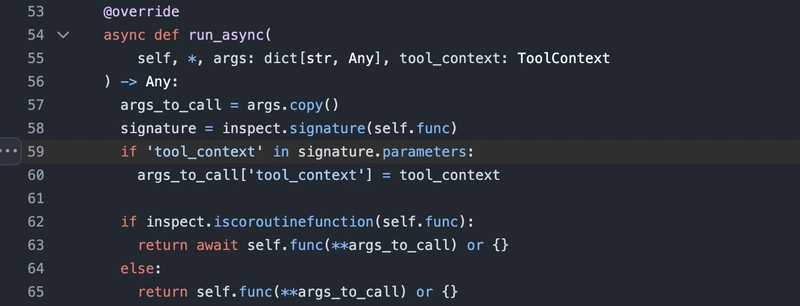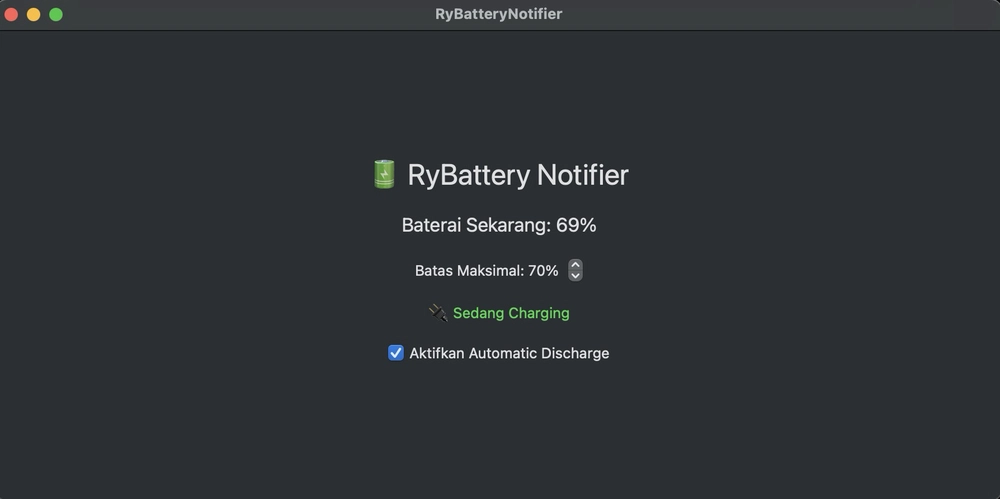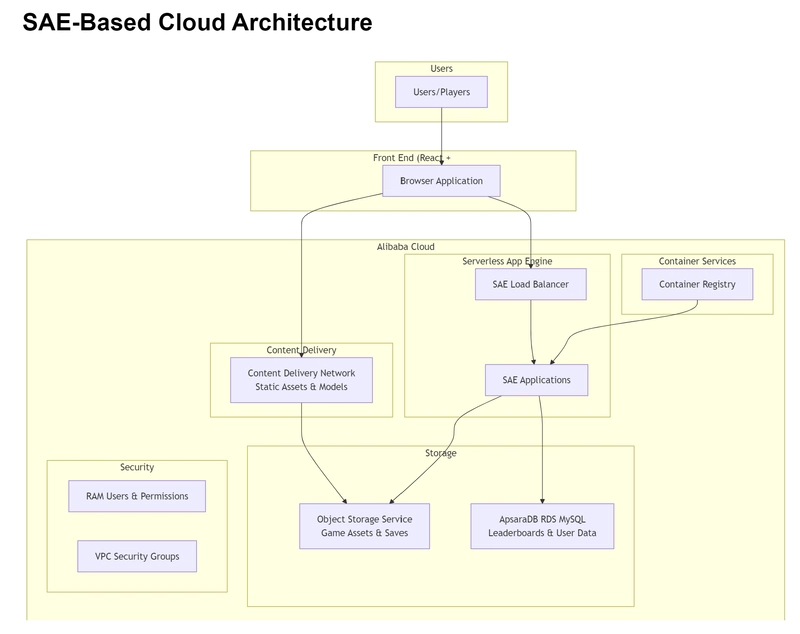Thinking of moving out of the U.S? Here are 10 hotspots for remote workers
As remote work becomes the norm rather than the exception, more U.S. professionals are redefining what it means to live and work well. With soaring living costs, healthcare hurdles, and burnout increasingly baked into American life, many are choosing to build their careers abroad. This shift isn’t just about finding cheaper rent or a temporary escape. It’s about discovering countries that actively welcome remote workers through smart visa policies, strong infrastructure, and communities that foster sustainable, fulfilling lifestyles.From Asia’s tech hubs to Europe’s historic towns, these 10 destinations are leading the remote work revolution and offering a chance to truly engage, not just pass through. Here’s where to go and why these spots are setting the standard for the future of work. 1. Spain Spain’s Digital Nomad Visa officially launched in 2023, quickly becoming one of the most attractive remote work programs in Europe. Available to non-EU nationals, including U.S. citizens, the visa allows remote workers to live and work in Spain for up to 12 months, with the option to renew for up to five years. Applicants must be employed by a non-Spanish company or freelance for international clients and demonstrate a minimum income of around €2,762.66. Visa holders are eligible for a 24% flat tax rate for the first four years, capped at €600,000/year, making it especially appealing for higher-earning nomads and entrepreneurs.Shane Clark, President of EuroAmerican Financial Advisors, has been based in Spain for the past eight years advising Americans moving abroad. “We’ve noticed a huge uplift in inquiries since the election last year that hasn’t slowed. Election results always provide a catalyst for people who were considering moving anyway, but this time, it has been turbocharged. Spain offers a relaxed lifestyle, affordable living costs, and great digital infrastructure in the cities.Many remote professionals are headed to cities like Valencia, Madrid, Barcelona, and the Balearic Islands, where they’re finding a lifestyle that blends Mediterranean ease with modern urban energy. Spain offers reliable internet, a growing number of coworking hubs, and strong communities of international creatives and founders. Beyond the vibrant cities, Spain’s regional diversity makes it easy to find your perfect balance, whether that’s vineyard views in La Rioja, surf breaks in the Canary Islands, or slow living in Andalusia. Affordable high-speed rail connects much of the country, and the cost of living remains lower than most Western European countries, especially outside of major metros. 2. Portugal Cities like Lisbon, Porto, and Braga have emerged as thriving hubs for remote workers, offering reliable high-speed internet, a lively creative and startup scene, and a warm, welcoming community of international professionals. Portugal’s Digital Nomad Visa is an ideal solution for remote workers, freelancers, and entrepreneurs looking to live and work legally in Portugal. The visa allows non-EU/EEA citizens to apply for either a short-term stay or a long-term residence permit. To qualify, applicants must earn at least €3,480 per month from foreign income, provide proof of accommodation, obtain a Portuguese tax number, and typically open a Portuguese bank account. The D8 Visa also allows for family reunification, provides access to Portugal’s excellent public healthcare system, and offers a pathway to permanent residency or citizenship after five years—making it a top choice for global remote professionals.“Portugal meanwhile has the advantage of being an hour nearer the U.S. in terms of its time zone,” finishes Clark. “Another driver for Americans moving to Portugal is that property is very affordable in southern Europe compared to in many parts of the U.S.. In particular we are seeing a lot of tech industry workers coming over from northern California to work remotely and experience a different lifestyle and culture in Europe.” Portugal offers sun-drenched coastlines, charming cobblestone neighborhoods, and a relaxed pace that makes room for inspiration and balance. Add in easy Schengen access, strong safety rankings, and a national obsession with good food and great coffee, and it’s easy to see why Portugal is a place to stay and thrive. 3. Japan In March 2024, Japan officially launched its Digital Nomad Visa under the “Designated Activities” residence category, opening the door for remote workers around the world to live and work in the country for up to six months. To qualify, applicants must earn at least 10 million JPY annually (approximately $67,000 USD), hold citizenship in a visa-exempt country with a tax treaty with Japan, and have valid private health insurance. Remote work must be for companies or clients based outside of Japan, and dependents, including spouses and children are permitted to join. Japan’s appeal to remote professionals goes far beyond its big cities. Locations like Hino

As remote work becomes the norm rather than the exception, more U.S. professionals are redefining what it means to live and work well. With soaring living costs, healthcare hurdles, and burnout increasingly baked into American life, many are choosing to build their careers abroad.
This shift isn’t just about finding cheaper rent or a temporary escape. It’s about discovering countries that actively welcome remote workers through smart visa policies, strong infrastructure, and communities that foster sustainable, fulfilling lifestyles.
From Asia’s tech hubs to Europe’s historic towns, these 10 destinations are leading the remote work revolution and offering a chance to truly engage, not just pass through. Here’s where to go and why these spots are setting the standard for the future of work.
1. Spain
Spain’s Digital Nomad Visa officially launched in 2023, quickly becoming one of the most attractive remote work programs in Europe. Available to non-EU nationals, including U.S. citizens, the visa allows remote workers to live and work in Spain for up to 12 months, with the option to renew for up to five years. Applicants must be employed by a non-Spanish company or freelance for international clients and demonstrate a minimum income of around €2,762.66. Visa holders are eligible for a 24% flat tax rate for the first four years, capped at €600,000/year, making it especially appealing for higher-earning nomads and entrepreneurs.
Shane Clark, President of EuroAmerican Financial Advisors, has been based in Spain for the past eight years advising Americans moving abroad. “We’ve noticed a huge uplift in inquiries since the election last year that hasn’t slowed. Election results always provide a catalyst for people who were considering moving anyway, but this time, it has been turbocharged. Spain offers a relaxed lifestyle, affordable living costs, and great digital infrastructure in the cities.
Many remote professionals are headed to cities like Valencia, Madrid, Barcelona, and the Balearic Islands, where they’re finding a lifestyle that blends Mediterranean ease with modern urban energy. Spain offers reliable internet, a growing number of coworking hubs, and strong communities of international creatives and founders. Beyond the vibrant cities, Spain’s regional diversity makes it easy to find your perfect balance, whether that’s vineyard views in La Rioja, surf breaks in the Canary Islands, or slow living in Andalusia. Affordable high-speed rail connects much of the country, and the cost of living remains lower than most Western European countries, especially outside of major metros.
2. Portugal
Cities like Lisbon, Porto, and Braga have emerged as thriving hubs for remote workers, offering reliable high-speed internet, a lively creative and startup scene, and a warm, welcoming community of international professionals. Portugal’s Digital Nomad Visa is an ideal solution for remote workers, freelancers, and entrepreneurs looking to live and work legally in Portugal. The visa allows non-EU/EEA citizens to apply for either a short-term stay or a long-term residence permit.
To qualify, applicants must earn at least €3,480 per month from foreign income, provide proof of accommodation, obtain a Portuguese tax number, and typically open a Portuguese bank account. The D8 Visa also allows for family reunification, provides access to Portugal’s excellent public healthcare system, and offers a pathway to permanent residency or citizenship after five years—making it a top choice for global remote professionals.
“Portugal meanwhile has the advantage of being an hour nearer the U.S. in terms of its time zone,” finishes Clark. “Another driver for Americans moving to Portugal is that property is very affordable in southern Europe compared to in many parts of the U.S.. In particular we are seeing a lot of tech industry workers coming over from northern California to work remotely and experience a different lifestyle and culture in Europe.”
Portugal offers sun-drenched coastlines, charming cobblestone neighborhoods, and a relaxed pace that makes room for inspiration and balance. Add in easy Schengen access, strong safety rankings, and a national obsession with good food and great coffee, and it’s easy to see why Portugal is a place to stay and thrive.
3. Japan
In March 2024, Japan officially launched its Digital Nomad Visa under the “Designated Activities” residence category, opening the door for remote workers around the world to live and work in the country for up to six months. To qualify, applicants must earn at least 10 million JPY annually (approximately $67,000 USD), hold citizenship in a visa-exempt country with a tax treaty with Japan, and have valid private health insurance. Remote work must be for companies or clients based outside of Japan, and dependents, including spouses and children are permitted to join.
Japan’s appeal to remote professionals goes far beyond its big cities. Locations like Hinohara Village, tucked in the mountains just 90 minutes from Tokyo, are building digital infrastructure with remote workers in mind—offering fiber-optic internet, free public Wi-Fi, and English-language support rolling out in April 2025. Over 93% forested, the area blends nature and connectivity for a peaceful but productive lifestyle. Hinohara is also launching dedicated accommodations for work stays in 2025, making it easier for nomads to explore long-term relocation options without committing upfront.
From Tokyo’s booming tech scene and unmatched internet speeds to rural regions investing in modern infrastructure, Japan is positioning itself as a compelling hub for international remote work. Add in low crime rates, reliable public transit, and a rich cultural landscape, and it’s easy to see why this new visa could be a game changer for digital nomads seeking stability and inspiration.
4. Estonia
Estonia was one of the first countries in the world to roll out a dedicated Digital Nomad Visa, positioning itself as a forward-thinking hub for remote professionals and startup founders. Introduced in 2020, the visa allows non-EU nationals to live in Estonia for up to 12 months while working remotely for a foreign employer or running their own location-independent business. Applicants need to demonstrate a minimum monthly income of €4,500 net income and meet basic documentation requirements—but the process is streamlined, with an application system that reflects Estonia’s digital-first mindset.
Known globally for its e-residency program, paperless government, and startup-friendly policies, Estonia has earned its reputation as a digital leader. Tallinn, the capital, combines cobblestone charm with tech-world efficiency, offering ultrafast Wi-Fi, an active community of international entrepreneurs, and coworking spaces tucked inside medieval buildings.
5. Thailand
Thailand continues to be a go-to for digital nomads seeking a blend of affordability, connectivity, and tropical charm. With its welcoming visa policies and thriving expat scene, the country makes it easy to stay productive while living in paradise. While many nomads enter on a 60-day tourist visa (often extendable), Thailand also offers the Smart Visa, a long-term option for highly skilled professionals in fields like tech, health, and innovation. The Smart Visa allows remote workers, entrepreneurs, and investors to stay for up to four years, bypassing the usual work permit requirements and streamlining the path to longer-term living.
Top hubs like Chiang Mai and Bangkok offer everything a remote worker could ask for: high-speed internet, modern coworking spaces, great coffee scenes, and a lower cost of living. Chiang Mai, in particular, has earned a reputation for its laid-back vibe and strong sense of creative community. Bangkok brings a more metropolitan pace, complete with major airport access, and a growing number of international tech startups.
Beyond the cities, Thailand’s beaches and islands provide a slower, more scenic way to work remotely. Places like Phuket, Koh Lanta, and Koh Phangan are now home to coworking cafés and coliving villas that cater to digital professionals.
6. Mexico
Mexico remains one of the most popular destinations for U.S. digital nomads, combining visa flexibility, strong infrastructure, and a lifestyle rich in culture, cuisine, and community. Through its Temporary Resident Visa, remote workers from most countries can stay in Mexico for up to 12 months initially, with the option to renew for a total of four years.
Cities like Mexico City, Oaxaca, Playa del Carmen, and Mérida have quickly become global hotspots for remote workers. You’ll find reliable internet, vibrant coworking spaces, and tight-knit expat communities in nearly every major destination. Mexico City stands out for its dynamic creative and tech scene, world-class food, and endless energy, while beach towns along the Riviera Maya offer oceanfront living without sacrificing connectivity.
7. South Korea
South Korea is rapidly becoming one of the most exciting destinations for remote workers, thanks to its brand-new Digital Nomad Visa—officially launched in early 2024. Known locally as the “Workation Visa,” this program allows foreign nationals employed by overseas companies to live and work in South Korea for up to one year, with the option to extend for another. To qualify, applicants must show proof of remote employment, an annual income of at least 85 million KRW (about $63,000 USD), and valid health insurance. The visa also supports accompanying family members, making it a strong choice for both solo professionals and digital nomad families.
At the center of the action is Seoul—a city built for high performance. With some of the fastest internet speeds in the world, an abundance of 24-hour cafés, cutting-edge infrastructure, and a thriving startup scene, it’s a digital haven that never sleeps. Yet beneath the tech-forward surface lies a culture rich in tradition, hospitality, and creativity.
For those craving a more relaxed remote lifestyle, Jeju Island is an underrated gem. This volcanic island offers black-sand beaches, waterfalls, hiking trails, and a growing digital infrastructure geared toward remote work. The island is part of South Korea’s push to support “Workation Zones,” offering extended-stay housing, coworking facilities, and nature-infused productivity. With a cost of living approximately 30% lower than major U.S. cities, South Korea provides a dynamic, well-connected, and culturally rich environment for remote professionals ready to plug in and thrive.
8. Vietnam
From the buzz of Ho Chi Minh City to the coastal calm of Da Nang, this Southeast Asian gem offers an unbeatable blend of affordability and creative energy. Coworking spaces can be found for under $100/month, and you’ll find sleek, modern apartments starting around $300. Whether you’re deep into a product launch or writing your next screenplay, the low cost of living gives you a serious runway to build, breathe, and grow.
If you’re earning your income from abroad, Vietnam doesn’t tax it—making it an especially attractive spot for freelancers, founders, and remote teams. Most nomads come intending to stay a few months and end up recalibrating their entire life plan.
Tom Zachystal from International Asset Management has been advising Americans abroad on investing and retirement planning for over 20 years. “We’ve definitely seen some shifts in who’s moving abroad and the most popular countries Americans are moving to. There used to be more retirees and American firms sending employees abroad, whereas in the past few years the majority are now young entrepreneurs, digital nomads, and young families, with a sense of adventure and a desire to explore being major motivations. Do your planning and seek advice though—many people don’t realize for example that not all U.S. banks and brokerage firms can continue working with non-U.S. residents.”
9. Norway
Norway offers one of the most seamless and inspiring remote work environments in the world. With world-renowned rankings in safety, healthcare, infrastructure, and overall quality of life, it’s a destination where everything just works—efficiently, beautifully, and reliably. Whether you’re based in Oslo, Bergen, or a small village tucked between fjords, you’ll find high-speed internet, clean design, and a strong sense of balance between work and nature. Public services are excellent, and the overall standard of living makes Norway a standout for those who prioritize well-being and focus.
While Norway doesn’t currently offer a dedicated digital nomad visa, there are flexible pathways for remote professionals. The Self-Employed Person residence permit allows freelancers and entrepreneurs to live and work in Norway, provided they have a signed contract with a Norwegian client, a detailed business plan, and a projected annual income of at least €35,719 (approx. 439,521 NOK). Additionally, remote workers connected to startups, innovation hubs, or cross-border collaborations can explore alternative residence options through Norway’s Skilled Worker and Startup tracks. The application process is straightforward, with clear guidance and strong institutional support. Cities like Oslo blend modern culture with smart coworking spaces, while towns like Tromsø and Ålesund offer access to unfiltered nature without losing digital connectivity.
10. Georgia
Georgia has emerged as new hotspot digital nomads thanks to its forward-thinking “Remotely from Georgia” program, which allows citizens from 95+ countries to live and work in the country visa-free for up to one year. Launched in 2020 to support the rise of remote work, the initiative requires basic documentation—like proof of remote income (recommended at $2,000/month or more), health insurance, and a confirmed place to stay. With an easy online application process and a welcoming stance toward expats, it’s become one of the most accessible digital nomad programs in the world.
Tbilisi, the capital, is where most nomads set up base—drawn in by its cobblestone streets, vibrant café culture, and growing startup scene. You can live comfortably in the city for under $700/month, with coworking spaces, boutique Airbnbs, and lively expat meetups throughout the week. The country also offers major financial incentives: a 1% flat tax for registered entrepreneurs under Georgia’s Small Business Status (up to ~$155,000 annual turnover), making it especially attractive for freelancers, solo founders, and remote consultants looking to optimize their tax strategy.
If you’re thinking of making the leap abroad, it’s not just about picking the right destination—it’s also about staying compliant with U.S. tax laws and understanding what financial responsibilities follow you across borders.
Vincenzo Villamena, founder of Online Taxman, has been a digital nomad for over 15 years, living and working in different countries around the world. “Most Americans don’t realize that they have to keep filing U.S. taxes when they move abroad, and this is something that they should definitely factor in. Luckily, there are tax breaks such as the Foreign Earned Income Exclusion for Americans working abroad. Remote working became normalized in the pandemic, which also inspired a desire in many people to go out and explore the world. We now work with thousands of American international digital nomads, both entrepreneurs and those working remotely for US firms. In general, I would say, get informed about both U.S. taxes for expats and the local tax implications of different digital nomad visas, and seek advice if you need to.”
As more Americans rethink what success, freedom, and quality of life really mean, the global map is shifting. Whether you’re chasing sunlight, savings, community, or simply a change of pace, the world awaits.











































































































































































![[The AI Show Episode 144]: ChatGPT’s New Memory, Shopify CEO’s Leaked “AI First” Memo, Google Cloud Next Releases, o3 and o4-mini Coming Soon & Llama 4’s Rocky Launch](https://www.marketingaiinstitute.com/hubfs/ep%20144%20cover.png)


































































































































![From fast food worker to cybersecurity engineer with Tae'lur Alexis [Podcast #169]](https://cdn.hashnode.com/res/hashnode/image/upload/v1745242807605/8a6cf71c-144f-4c91-9532-62d7c92c0f65.png?#)
























![BPMN-procesmodellering [closed]](https://i.sstatic.net/l7l8q49F.png)























































































































_Tanapong_Sungkaew_via_Alamy.jpg?width=1280&auto=webp&quality=80&disable=upscale#)

_Andreas_Prott_Alamy.jpg?width=1280&auto=webp&quality=80&disable=upscale#)






























































































![Apple highlights Apple Intelligence ‘Clean Up’ feature in new ad [Video]](https://i0.wp.com/9to5mac.com/wp-content/uploads/sites/6/2025/04/apple-intelligence-clean-up.jpeg?resize=1200%2C628&quality=82&strip=all&ssl=1)

![CMF Phone 2 Pro has a dual-tone design and improved camera in latest teasers [Gallery]](https://i0.wp.com/9to5google.com/wp-content/uploads/sites/4/2025/04/cmf-phone-2-pro-camera-tease.jpg?resize=1200%2C628&quality=82&strip=all&ssl=1)

![Lenovo shows off its next 8.8-inch Legion Tab with vague AI promises [Gallery]](https://i0.wp.com/9to5google.com/wp-content/uploads/sites/4/2025/04/lenovo-legion-tab-y700-2025-1.jpg?resize=1200%2C628&quality=82&strip=all&ssl=1)












![Samsung Targets Late 2026 Launch for Advanced Texas Chip Fab Following Delays [Report]](https://www.iclarified.com/images/news/97073/97073/97073-640.jpg)

![Apple Shares Official Trailer for 'Long Way Home' Starring Ewan McGregor and Charley Boorman [Video]](https://www.iclarified.com/images/news/97069/97069/97069-640.jpg)
![Apple Watch Series 10 Back On Sale for $299! [Lowest Price Ever]](https://www.iclarified.com/images/news/96657/96657/96657-640.jpg)





























![Mobile Legends: Bang Bang [MLBB] Free Redeem Codes April 2025](https://www.talkandroid.com/wp-content/uploads/2024/07/Screenshot_20240704-093036_Mobile-Legends-Bang-Bang.jpg)





































































































